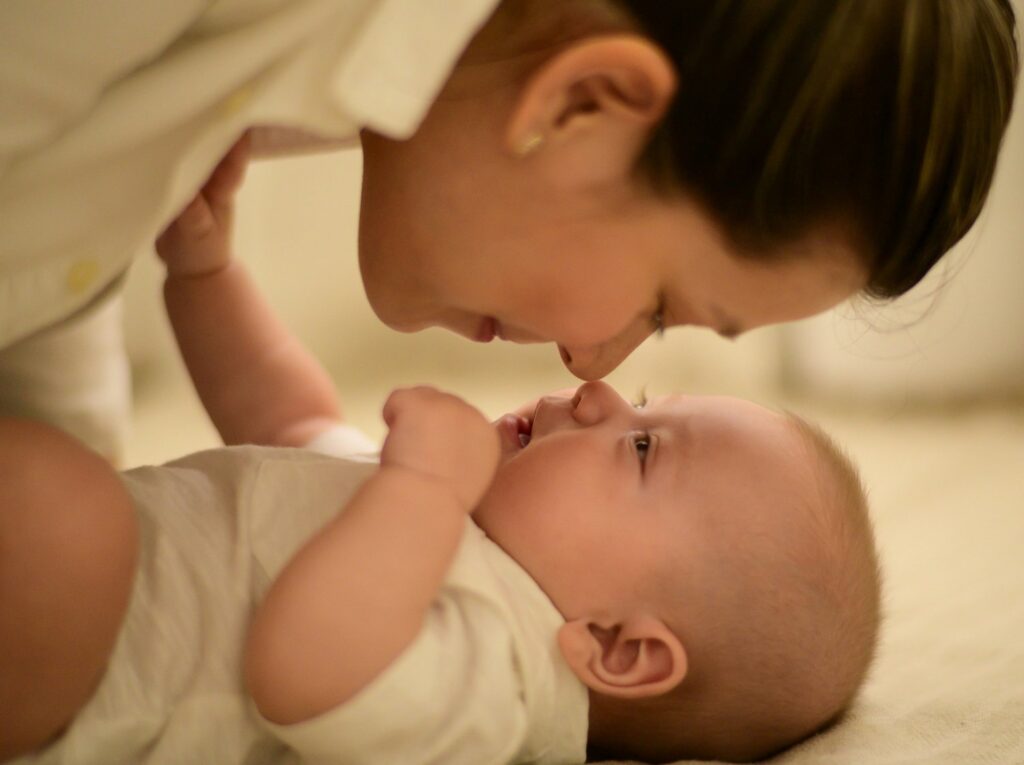
Milestones from 2 Months to 1 year
Every child’s journey in learning language is unique, but there are some general milestones that can help you understand what’s typical and what might warrant a closer look. Let’s explore the stages of early language development from around 2 months to 2 years, focusing on the steps that babies take as they discover their voice and learn to communicate with the world.
2–3 Months: Cooing and Gooing
Around 2 to 3 months, babies start to “play” with their voices, producing coos and goos. These are consonant vowel sounds, such as “gooo” and “gahh.” They also produce isolated vowels (“ooo” and “ahh”). This stage is foundational, setting the stage for more complex vocal play later on.
4–5 Months: Vocal Play
At this stage, babies begin exploring the different sounds they can make, fluctuating pitch, loudness, and even experimenting with tongue and lip movements. You might hear squeals, giggles, and other playful sounds as they learn to control their tongue, lips, jaw, etc. This exploration is critical as it builds the coordination necessary for speech.
6–9 Months: Reduplicated Babbling
Between 6 and 9 months, babies start to produce reduplicated babbling — strings of the same consonant-vowel sounds, like “bababa” or “dadada.” This milestone marks a big leap in vocal development, as babies begin to produce rhythmic, repetitive syllables that mimic the flow of real language.
9–12 Months: Variegated Babbling
By 9 to 12 months, babbling becomes more complex. Babies now experiment with different consonant-vowel combinations, resulting in variegated babbling. For example, they might produce strings like “badaga” or “magaba.” This stage reflects an increased control over their speech muscles and a growing understanding of the patterns of real language.
Around 12 months, babies are also producing their first word. They understand some simple words when hearing adults speak. For example, they may know who “mama” and “dada” reference now!
These milestones are averages, and every child develops at their own pace. Some babies might reach these stages earlier or later than others, and that’s completely normal. However, if you have any concerns about your child’s language development, it’s always a good idea to talk with your pediatrician or a speech-language pathologist.
Language development is an exciting process — enjoy each new sound and syllable as your little one discovers their voice!
Baby babble stages & development. SpeechNet Speech Pathology. (2017, November 23). https://www.speechnet.com.au/babble-baby-babble-stages-development

Leave a Reply